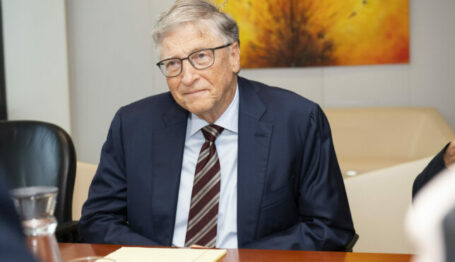Book Profile
Return to Charity?: Philanthropy and the Welfare State
Martin Wooster’s new book Return to Charity? Philanthropy and the Welfare State is a quick read that’s hopeful, fascinating and often funny. It’s a short 65 page monograph that will alert readers to the blame organized philanthropy must bear for the creation of America’s welfare state and the opportunity foundations now have to remedy their earlier mistakes. In an earlier book for CRC, The Great Philanthropists and the Problem of ‘Donor Intent’ Martin Wooster explained how philanthropists like Andrew Carnegie, John D. Rockefeller and Henry Ford lost control of the foundations they created and endowed with their fortunes. Wooster’s new book describes what the new foundations tried to do once they broke free from donor control.
Executive Summary
Martin Wooster’s new book Return to Charity? Philanthropy and the Welfare State is a quick read that’s hopeful, fascinating and often funny. It’s a short 65 page monograph that will alert readers to the blame organized philanthropy must bear for the creation of America’s welfare state and the opportunity foundations now have to remedy their earlier mistakes. In an earlier book for CRC, The Great Philanthropists and the Problem of ‘Donor Intent’ Martin Wooster explained how philanthropists like Andrew Carnegie, John D. Rockefeller and Henry Ford lost control of the foundations they created and endowed with their fortunes. Wooster’s new book describes what the new foundations tried to do once they broke free from donor control.
Wooster argues that New Deal social programs in the 1930s (and the Great Society programs in the 1960s) did not spring from the minds of ambitious or opportunistic politicians. Rather, their origins can be found in the work of an earlier generation of social thinkers and researchers who were supported by the first foundation philanthropies. The largest and most important foundations were created from 1900 to 1925. The Russell Sage Foundation and others were established in order to support the efforts of the new profession of social work. Unlike charity workers of the 19th century, the first trained social workers argued that “social science” — not religion — should identify the causes and cures for social problems. They also argued that government, not private charity, should assume responsibility for solving the problems of poverty once social science identified them. Wooster explains how the ideas of social work and social science are responsible for the public welfare programs that took shape during the Depression.
In the second half of the book Wooster surveys conservative criticisms of the welfare state from the 1960s through the 1980s. He notes that prominent conservatives attacked waste, fraud and abuse in the welfare system, but they seldom argued that private charity could be relied upon to solve social problems. It was not until the 1990s that conservative writers and activists like Marvin Olasky and Robert Woodson began making the case that the old concept of charity had more to offer the poor than government welfare programs, and politicians like Newt Gingrich, Al Gore and George W. Bush began listening to them. Wooster examines the latest available data on the work of religious charities. It suggests that local and faith-based organizations are not only accomplishing many charitable good deeds for the poor and needy, but that their work is more widespread and more effective than many assume. Finally, he considers whether government can help private charities without infringing on their rights or reimposing welfare entitlements. The current uncertain state of constitutional law regarding private charities presents some real problems that supporters of government help for charity need to consider.
Return to Charity? Philanthropy and the Welfare State should be read by anyone interested in foundation philanthropy. Donors planning to endow a family foundation should read it. So should religious charities and policymakers. Cost: $10.



